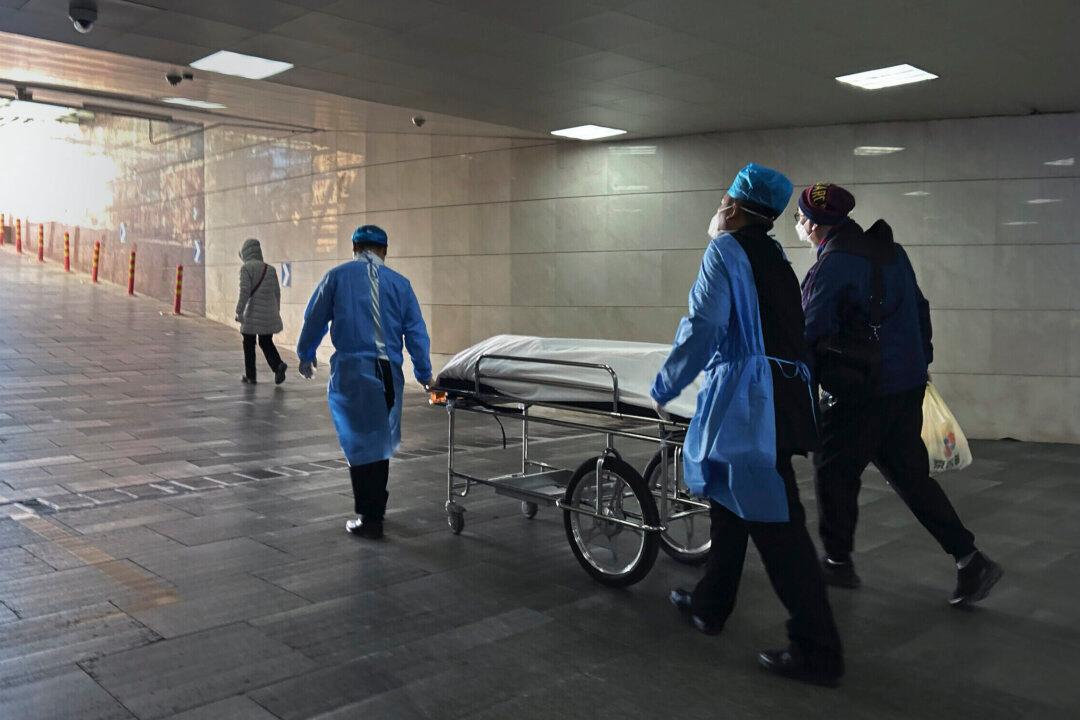On the road leading to a crematorium in China’s southern city of Nanjing where thick black smoke billows into the sky, the line of cars is so long that it isn’t clear where it ends.
On the curb squats a woman wearing a white mourning hat with her face buried in her hands, her cries piercing the air.





